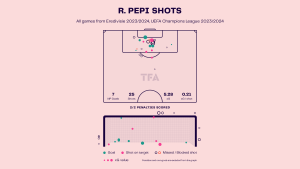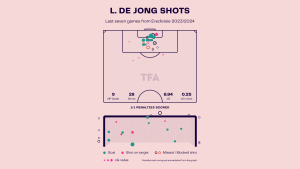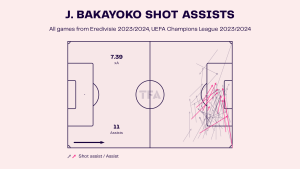Johan Cruyff, the footballer, was born on April 25, 1947; he passed away on March 24, 2016. The influence of Hendrik Johannes Cruyff on Dutch, European and world football cannot be overestimated.
Cruyff has always been close to football, having been born five minutes from Ajax’s home stadium, the De Meer stadium. Cruyff played for such clubs as Los Angeles Aztecs, Washington Diplomats, Levante, Feyenoord, Ajax, and Barcelona. Cruyff began his career at Ajax at club level, where he won eight Eredivisie titles, three European Cups, and an Intercontinental Cup.
Johan Cruyff’s football skills have earned him honours, including the title of European Footballer of the Year, and he is one of the 100 greatest living players on FIFA’s list. He then created the Johan Cruyff Academy to educate athletes and business professionals in sports management. His Cruyff Stadium offers young players worldwide a valuable opportunity to play their favourite games. After Johan Cruyff’s career ended, he stayed in football, coaching Ajax and coaching the team. Johan Cruyff continued to play for the team until he was sold to Barcelona for around $2 million in 1973 for a world record transfer share.
Johan Cruyff played well with his opposing team and even received the most votes for the Dutch Footballer of the Year award. Johan Cruyff’s career breakthrough came in the 1965/66 football season when he scored 25 goals in 23 games played by AFC Ajax. Individually, Johan Cruyff had won three Ballons d’Or, most recently in 1974 when he played for the Netherlands in the Summer World Cup when Amsterdam‘s Total Football became the global Amsterdam’s Total Football.
After retiring from playing in 1984, Cruyff went on to great success as manager of Ajax and then Barcelona; he remained an influential advisor to both clubs. In 1988, Cruyff’s career took off after hiring a Barcelona coach. After retiring in 1984, Cruyff returned to Ajax a year later, but this time as a manager, following in the footsteps of his mentor Rinus Michels, who also followed the same path.
It is thanks to his coaching that Barcelona plays tiki-taka football. The total football played by the Dutch team was innovative, and Cruyff played an essential role in the whole system. In 1974, Cruyff joined forces with the radical Rinus Michels of the Dutch football team at the World Cup, where they demonstrated the tactical theory of total football. Leaving aside the defeat in the final, Cruyff and his Dutch teammates managed to capture the football world’s attention with their new playing philosophy.
The recent successes of Spanish football, both at the club and international level, are cited by many as proof of Cruyff’s influence on modern football. There is also a successful range of Cruyff apparel and footwear and Cruyff Football. A coaching portal focused on disseminating and teaching his philosophy of playing football.









